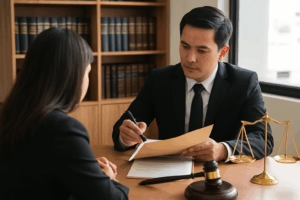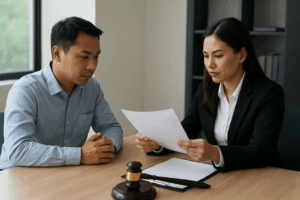Foreign Business License in Thailand: Decoding the Landscape
Thailand, often dubbed the “Land of Smiles”, beckons to foreign investors with its mesmerizing natural beauty, rich cultural tapestry, robust economy, and strategic geographical positioning. However, for an entrepreneur with dreams of tapping into this Southeast Asian goldmine, understanding the intricacies of its foreign business license regulations is vital. The road to establishing a business here is paved with both opportunities and challenges. While many are acquainted with the foundational prerequisites like securing a business visa or work permit, the depths of the foreign business license often remain uncharted territory. So, let’s embark on an in-depth exploration of these critical nuances.
1. The Foreign Business Act (FBA): The Backbone of Foreign Investment
The FBA serves as the linchpin, categorizing businesses and determining the level of foreign involvement permissible. These categories intricately lay out sectors where foreign operations might be restricted or outrightly prohibited. While the prohibition against foreign land ownership is almost universally acknowledged, nuances within sectors like agriculture, manufacturing, or services often slip under the radar. It’s essential for investors to thoroughly dissect the FBA and gain a comprehensive grasp over where their business fits within these categories.
2. Nominee Shareholders: A Risky Shortcut
The FBA serves as the linchpin, categorizing businesses and determining the level of foreign involvement permissible. These categories intricately lay out sectors where foreign operations might be restricted or outrightly prohibited. While the prohibition against foreign land ownership is almost universally acknowledged, nuances within sectors like agriculture, manufacturing, or services often slip under the radar. It’s essential for investors to thoroughly dissect the FBA and gain a comprehensive grasp over where their business fits within these categories.
3. Deciphering Capital Requirements: More than Just Numbers
One of the most overlooked aspects when setting up a business in Thailand is the stipulated capital requirement. Foreign-owned companies, based on the nature of their enterprise and their contingent of foreign employees, need to maintain a capital ranging from a modest 2 million THB to a staggering 100 million THB or more. This requirement ensures the business’s stability and its commitment to the Thai economy.
4. The Retail and Wholesale Conundrum: Ownership and Capital
In the realm of retail, a foreign entity with capital falling short of the 100 million THB mark can lay claim to only 49% of the business. This ensures a balance and safeguards local interests. When pivoting to the wholesale domain, the capital bar is set even higher, often surpassing the 100 million THB threshold.
5. Service Businesses: The Open Yet Guarded Sector
Service businesses find their place in the FBA’s third category. While at a glance, they appear to be welcoming to foreign entities, a closer inspection reveals certain caveats. There are sectors within services where specific laws might prevent foreign intrusion. Investors must be wary and well-informed about these specific restrictions.
6. The Odyssey of Licensing: Patience is Paramount
Securing a foreign business license in Thailand is no cakewalk. Contrary to popular perceptions of it being a straightforward procedure, the path is strewn with extensive documentation, potential setbacks, and time-consuming validations. Each document, each clause, and each submission plays a pivotal role in ensuring that the license sees the light of day. An oversight, however minor, can set the process back by weeks, if not months.
7. The U.S.-Thailand Treaty: An American Privilege
American businesses find themselves in a slightly advantageous position courtesy of the U.S.-Thailand Treaty of Amity and Economic Relations. This treaty permits American companies to venture into areas typically off-limits under the FBA. However, it isn’t a carte blanche. Sectors like land ownership and certain communication spheres still remain out of reach.
8. Ownership Dynamics: Busting the 49% Myth
The widely held belief postulates that a foreign entity cannot own more than 49% of a Thai enterprise. But, like many beliefs, exceptions exist. Through pathways like acquiring a specialized foreign business license, leveraging promotions from the Board of Investment (BOI), or tapping into specific treaties, the doors to majority ownership swing open.
9. The Evolving License: Renewals and Validity
A foreign business license isn’t a ‘forever’ ticket. It comes attached with an expiration date, which varies depending on the conditions set during its issuance. Businesses must be vigilant, ensuring timely renewals to avoid operational hiccups.
10. Periodic Reporting: The Constant Vigil
The responsibilities of a foreign business don’t culminate with obtaining the license. There’s an ongoing commitment to furnish periodic reports to Thai authorities. This ensures the enterprise’s continued adherence to the tenets under which the license was initially granted.
Conclusion:
Thailand, with its myriad of opportunities, is undeniably an investor’s dream. However, dreams demand diligence. The complexities of the Thai legal and business framework necessitate an in-depth understanding, meticulous planning, and often, seeking counsel from local experts. The foreign business license, with its multifaceted intricacies, stands as a testament to this. As entrepreneurs set their sights on this vibrant land, arming themselves with knowledge will be their most potent ally.
Contact : Siam Center Law Group by calling +66(0) 2 648 5041, +66(0) 2 648 5042





